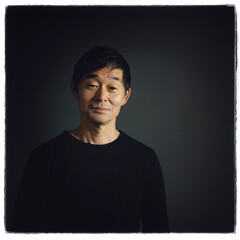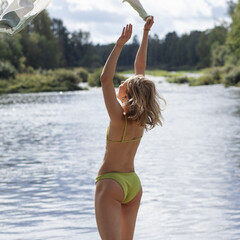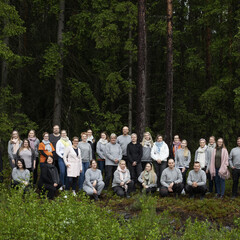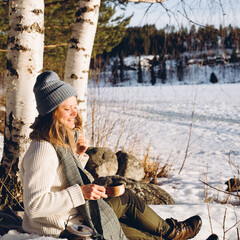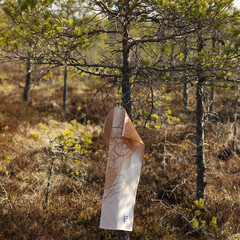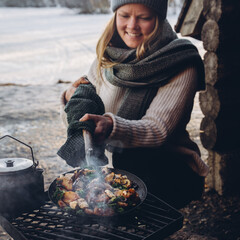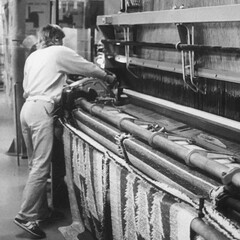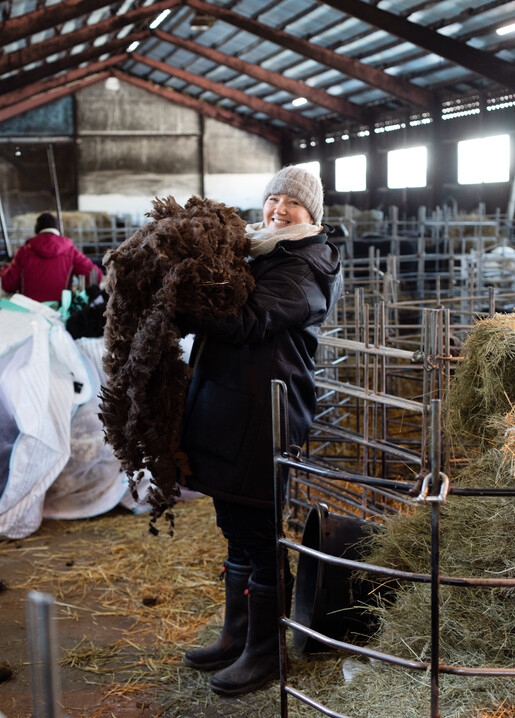
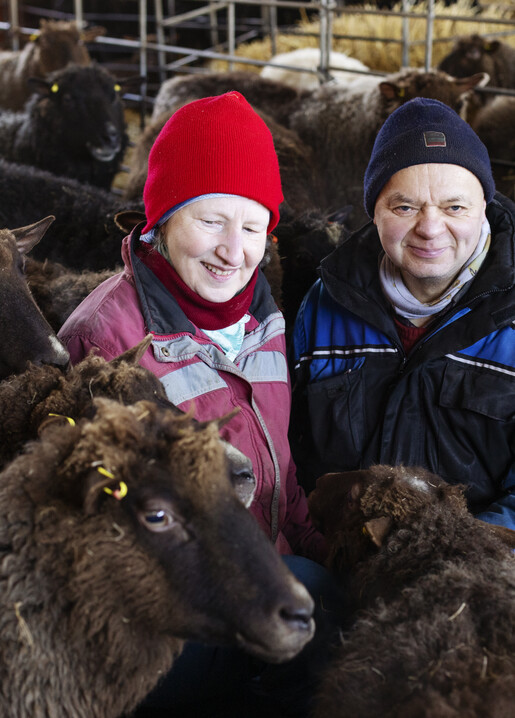
Investing in high-quality Finnsheep wool
Text & Photo Katja Lösönen
The atmosphere in the sheep barn of Reino and Raija Louko is peaceful. Only a stray bleat blends in with the even buzzing of the shears. The brown, black, and white Finnsheep curiously peak at the shearing line where the shearer handles the sheep with a steady grip. The wool shorn here will end up at the weaving mill of Lapuan Kankurit a few miles away, where it will be transformed into high-quality Finnish design.
At the Louko sheep farm, the biannual shearing of the Finnsheep is in full gear. The shearer flips the sheep into a seating position, and the shearing process only takes the experienced professional a couple of minutes. The peaceful sheep are keeping still, apparently enjoying the shearing. “We use the best shearers in Finland to ensure we get the highest quality wool, while also making sure the sheep are not harmed in any way,” says Reino Louko.
The Finnsheep is an original Finnish breed, typically white, black, or brown in colour. “By its nature, the Finnsheep is friendly and very curious,” says Raija Louko. “They want to take part in everything, and each one has its own personality.”
From the wool produced in Finland, only around half is used, which means that a large part of the wool goes to waste. The main reason for the poor utilisation rate is the low price of raw wool, which has not encouraged sheep farmers to undertake the laborious tasks of sorting and selling the wool. “Once demand increases, the price of wool fibre will go up. Our starting point is making it profitable for the sheep farmers to collect and sort their wool,” says Esko Hjelt.
Lapuan Kankurit has accepted the challenge by making large investments in the utilisation of Finnish wool. Esko Hjelt has visited many sheep farms to collect wool and create a supplier network of wool producers. In the production facility in Lapua, new Jacquard weaving looms have been installed, and building a unique wooltextile finishing facility in Finland has started. In total, this is a two million-euro investment.
“Using domestic wool is another tangible step towards even more sustainable production,” says Esko Hjelt. “It also means that we get to weave top-quality wool. Especially the wool from Finnsheep is exceptionally soft, easy to felt, and has a beautiful sheen.”
The first batches of wool have been washed in England because as of now, industrial-scale washing is not possible in Finland. Once washed and back in Finland, the wool is spun into yarn. Methods are also being developed to utilise natural dyes. Finally, the yarn is woven and finished into wool blanket. “We are rebuilding a production line that had previously disappeared from Finland,” says Esko Hjelt.
He adds that consumer demand plays a great part in the use of domestic raw materials. “The consumers’ interest in the origin of raw materials and sustainable production has grown, so we are relying on that our highquality products made from Finnish wool will find their way into homes near and far.”



